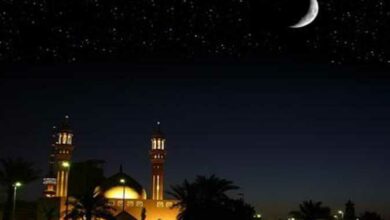Narendra Modi is making the first visit to Israel by an Indian prime minister next week, in a public embrace of a country that he has long admired for its military and technical expertise but which his predecessors kept at arm’s length.
India has traditionally trodden a careful diplomatic line in the region, analysts say, wary of upsetting Arab states, namely Iran, which it relies on for imports of oil.
But now Modi is lifting the curtain on a thriving military relationship. He will hold three days of talks with his Israeli counterpart, Benjamin Netanyahu, to advance sales and the production of missiles, drones and radar systems, officials in Delhi and Tel Aviv said.
The Indian leader will not travel to Ramallah, the seat of the Palestine Authority and a customary stop for visiting leaders trying to maintain a balance in political ties.
The apparent shift in what has long been a bedrock of India’s foreign policy risks sharpening criticism that the country’s 180 million Muslims are increasingly being marginalized under Modi’s Hindu-nationalist Bharatiya Janata Party (BJP) government, which rose to power in 2014.
“Narendra Modi’s visit to Israel will only strengthen its occupation of Palestine,” said Asaduddin Owaisi, a member of India’s federal parliament from a regional group that promotes Muslim rights.
In previous decades, under the left-leaning Congress Party, former Palestinian leader Yasser Arafat was a regular visitor to New Delhi, and was pictured hugging then Indian Prime Minister Indira Gandhi when the two were championing the Non-Alignment Movement.
In May, Modi hosted Arafat’s successor, Palestinian President Mahmoud Abbas, and offered help in health and information technology, but the trip was low-key.
The scale of the ongoing collaboration with Israel dwarfs anything India is attempting with the Palestinians, officials say.
“We have a wide ranging partnership with Israel that ranges from agriculture cooperation to homeland security,” said Bala Bhaskar, head of the foreign ministry’s West Asia division.
He said India’s ties with Israel and Palestine were important in their own right and neither should viewed through the prism of the other.
However, an Israeli diplomat said Modi’s standalone trip to Tel Aviv was an important signal.
The two sides are expected to announce strategic partnerships in areas including water, agriculture and space technology during Modi’s visit.
But it is the defense relationship that is most advanced – India is now Israel’s biggest arms market, buying weapons at an average of $1 billion each year.
Eli Alfassi, executive vice president of marketing at state-owned Israel Aerospace Industries (IAI), the country’s biggest defense firm, said it was supplying India with drones, radar, communication systems and cybersecurity.
India is in the midst of a military modernization program worth more than $100 billion to help counter rivals Pakistan and China.
Israel, the United States and Russia are India’s top military suppliers, and Modi’s government has said it will favor countries that are ready to share technology.




